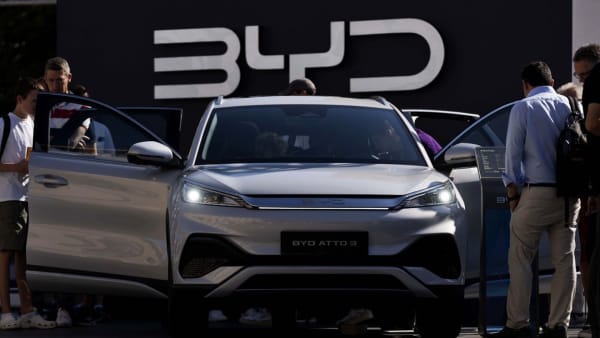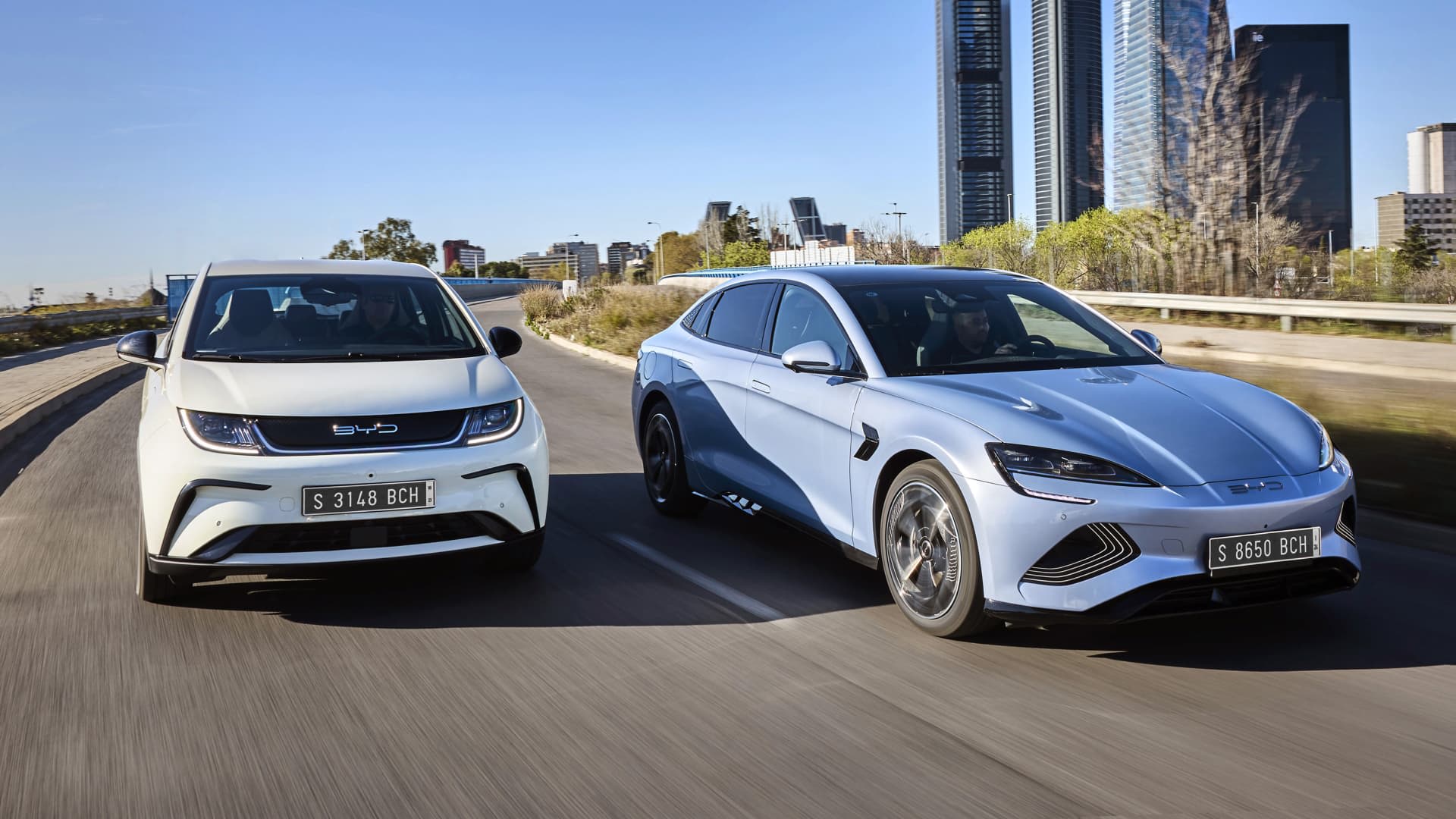China's BYD Floods Europe with Affordable Electric Cars, Clashing with Obsolete Tariffs
The surge of Chinese electric car manufacturer BYD into the European market is reshaping the automotive landscape, challenging traditional perceptions and highlighting the need for updated trade policies. BYD's strategy of offering low-cost, high-quality electric vehicles has sent shockwaves through the industry, prompting a reevaluation of the role of tariffs in the rapidly evolving global economy.

BYD's European Offensive
BYD, backed by Warren Buffett's Berkshire Hathaway, has rapidly established itself as a formidable player in the electric car market. With ambitious plans to capture a significant share of the European automotive market, BYD has launched several models, including the Tang SUV and Han sedan, at highly competitive prices. The Tang, for instance, starts at approximately 45,000 euros, undercutting established European brands.

Impact on the European Automotive Market
BYD's entry into Europe has shaken up the industry. Traditional carmakers, accustomed to higher prices and slower electrification rates, have been forced to respond. Volkswagen, for example, has announced ambitious plans to increase its electric vehicle production capacity, while BMW has unveiled a budget-friendly electric SUV to compete with BYD's offerings.
Consumers, meanwhile, are benefiting from the increased competition and lower prices. BYD's affordable electric cars have made it easier for people to switch to sustainable transportation, accelerating the transition towards a greener future.
Clash with Obsolete Tariffs

However, BYD's European expansion has also highlighted the limitations of existing trade policies. The European Union currently imposes a 10% tariff on imported electric vehicles from China, a legacy of protectionist measures aimed at safeguarding the domestic automotive industry.
These tariffs are now seen as outdated and counterproductive. They artificially inflate the cost of BYD's electric cars, making them less competitive in the European market. Furthermore, they hinder the adoption of electric vehicles, slowing the decarbonization of the transportation sector.
Calls for Tariff Reform
Industry experts and policymakers are calling for the elimination or reduction of tariffs on imported electric vehicles. Such a move would level the playing field for Chinese manufacturers and accelerate the adoption of electric cars in Europe.
The European Automobile Manufacturers' Association (ACEA) has urged the EU to remove tariffs on electric vehicles, arguing that they protect inefficient legacy industries at the expense of consumers and the environment. Similarly, the European Environmental Bureau (EEB) has called for abolishing tariffs to promote e-mobility and reduce greenhouse gas emissions.
Benefits of Tariff Reform
Eliminating or reducing tariffs on imported electric vehicles would have numerous benefits:
* Increased affordability: Lower prices would make electric cars more accessible to consumers, accelerating the transition towards sustainable transportation.
* Reduced emissions: Electric vehicles emit zero tailpipe emissions, contributing to improved air quality and mitigating climate change.
* Job creation: The growing electric vehicle industry is creating new jobs in manufacturing, sales, and maintenance across Europe.
* Innovation: Competition from Chinese manufacturers is driving innovation in the automotive sector, fostering the development of new technologies and more efficient vehicles.
Challenges and Implications
While there is growing support for tariff reform, some challenges and implications remain:
* Job losses in legacy industries: Reducing or eliminating tariffs could lead to job losses in traditional automotive manufacturing sectors that have been slow to transition to electric vehicles.
* Trade imbalances: Increased imports of electric vehicles from China could exacerbate existing trade imbalances between Europe and China.
* Political considerations: Trade policies are often influenced by political factors, making it difficult to implement changes that may be perceived as favoring foreign competitors.
The influx of Chinese electric car manufacturer BYD into Europe has exposed the limitations of obsolete trade policies. The current 10% tariff on imported electric vehicles from China is hindering the adoption of electric cars and stifling competition. Industry experts and policymakers are calling for the elimination or reduction of these tariffs to promote e-mobility, reduce emissions, and accelerate the transition to a greener future.
While challenges and implications remain, tariff reform is essential to creating a level playing field for electric vehicle manufacturers and fostering a more sustainable and innovative automotive industry. By embracing change and removing barriers to trade, Europe can capitalize on the benefits of affordable, high-quality electric cars and drive the transformation towards a cleaner and more prosperous future.
